Health Care Right Of Conscience
Congress should pass a comprehensive Health Care Right Of Conscience Act that protects health care providers from being forced to participate in procedures that violate their religious beliefs or moral convictions, including those involving abortion, contraception, and end-of-life care.

Administrators applaud delay of ‘conscience’ health care rule – Source www.sfchronicle.com
As health care becomes increasingly complex and controversial, it is more important than ever to protect the rights of conscience of health care providers. When health care providers are forced to participate in procedures that violate their religious beliefs or moral convictions, it can lead to a number of negative consequences, including:
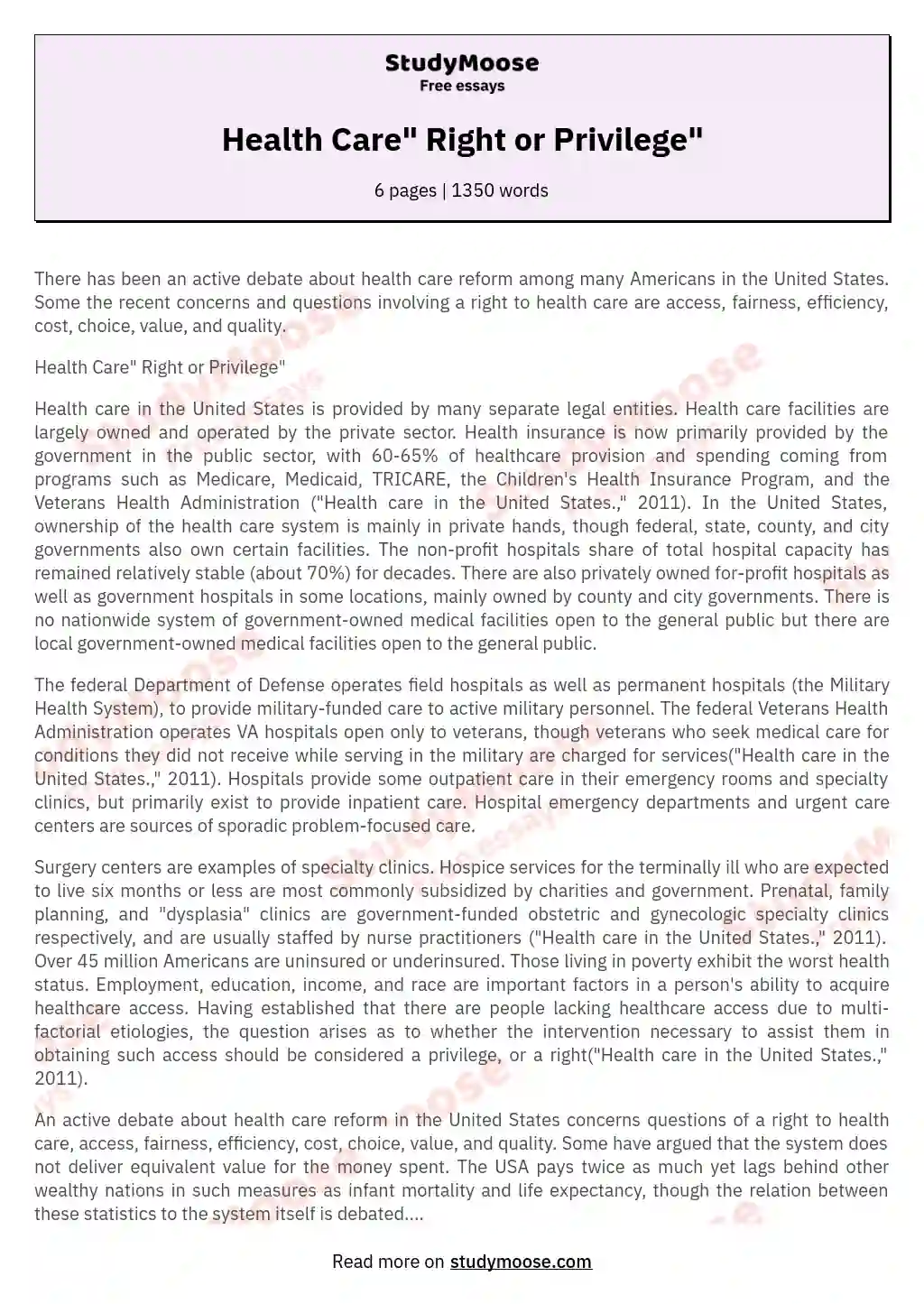

The Health Care Right Of Conscience Act would protect health care providers from discrimination based on their religious beliefs or moral convictions. It would also ensure that patients have access to the full range of health care services, regardless of the personal beliefs of their providers.

Mental health care act 17 of 2002 – COPYRIGHT This work has been – Source www.studocu.com
The main points of the Health Care Right Of Conscience Act are as follows:
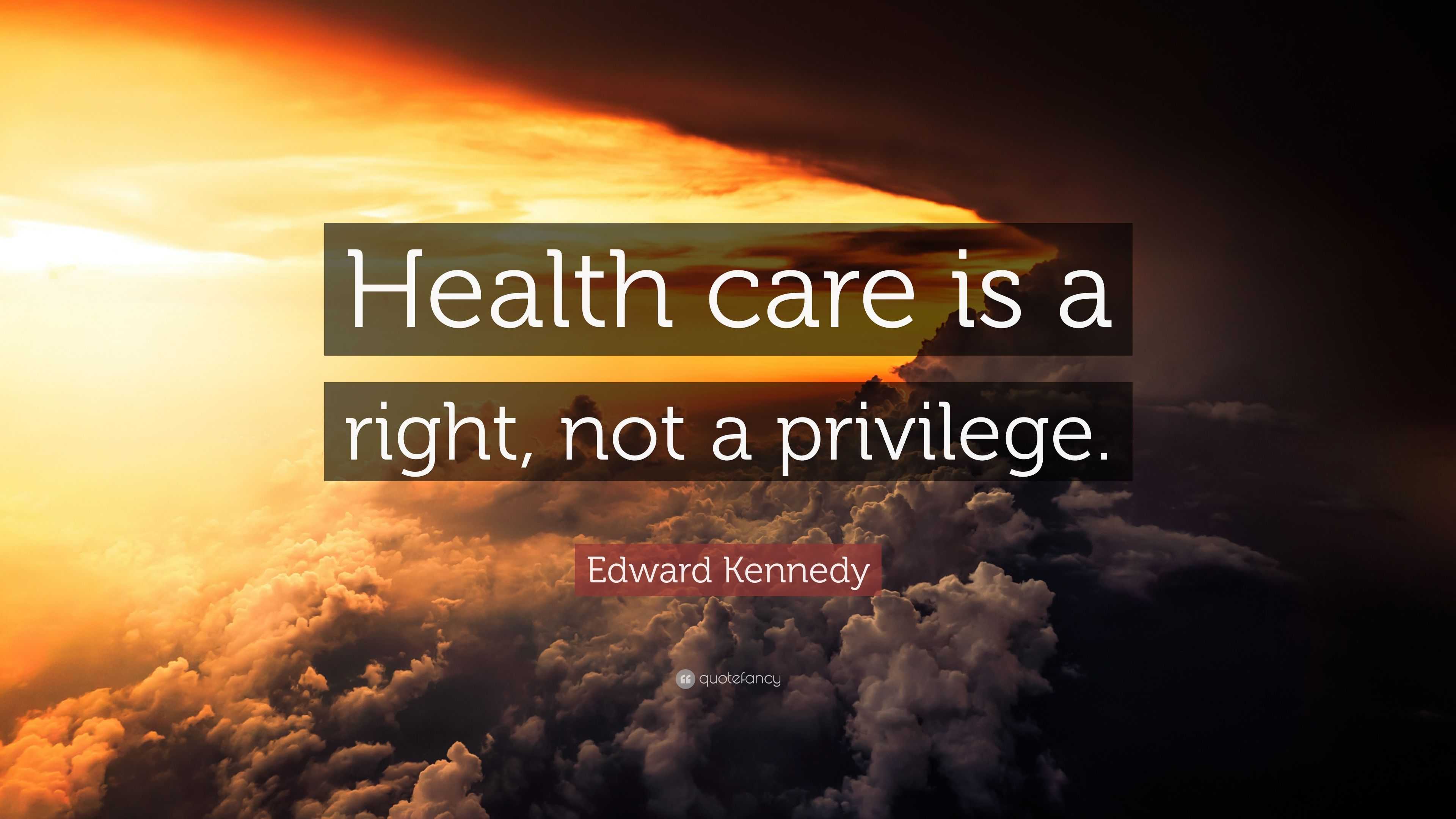
Edward Kennedy Quote: “Health care is a right, not a privilege.” – Source quotefancy.com
Health Care Right Of Conscience Act: Protecting Health Care Providers’ Rights
The Health Care Right Of Conscience Act would protect health care providers from being forced to participate in procedures that violate their religious beliefs or moral convictions. This includes procedures such as abortion, contraception, and end-of-life care.
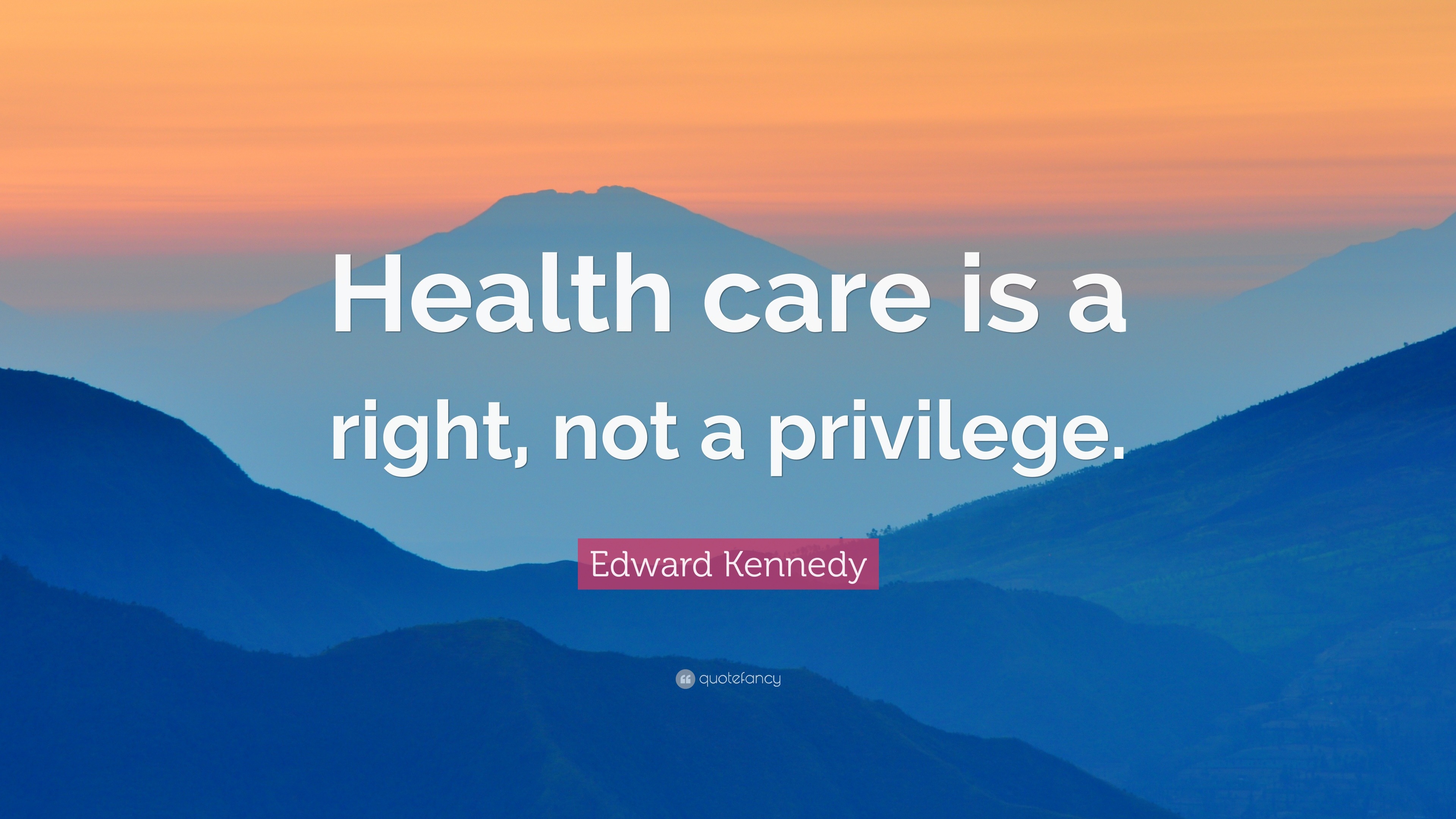
Edward Kennedy Quote: “Health care is a right, not a privilege.” – Source quotefancy.com

The Act would also protect health care providers from being discriminated against because of their religious beliefs or moral convictions. This means that they could not be fired, demoted, or otherwise penalized for refusing to participate in a procedure that violates their conscience.
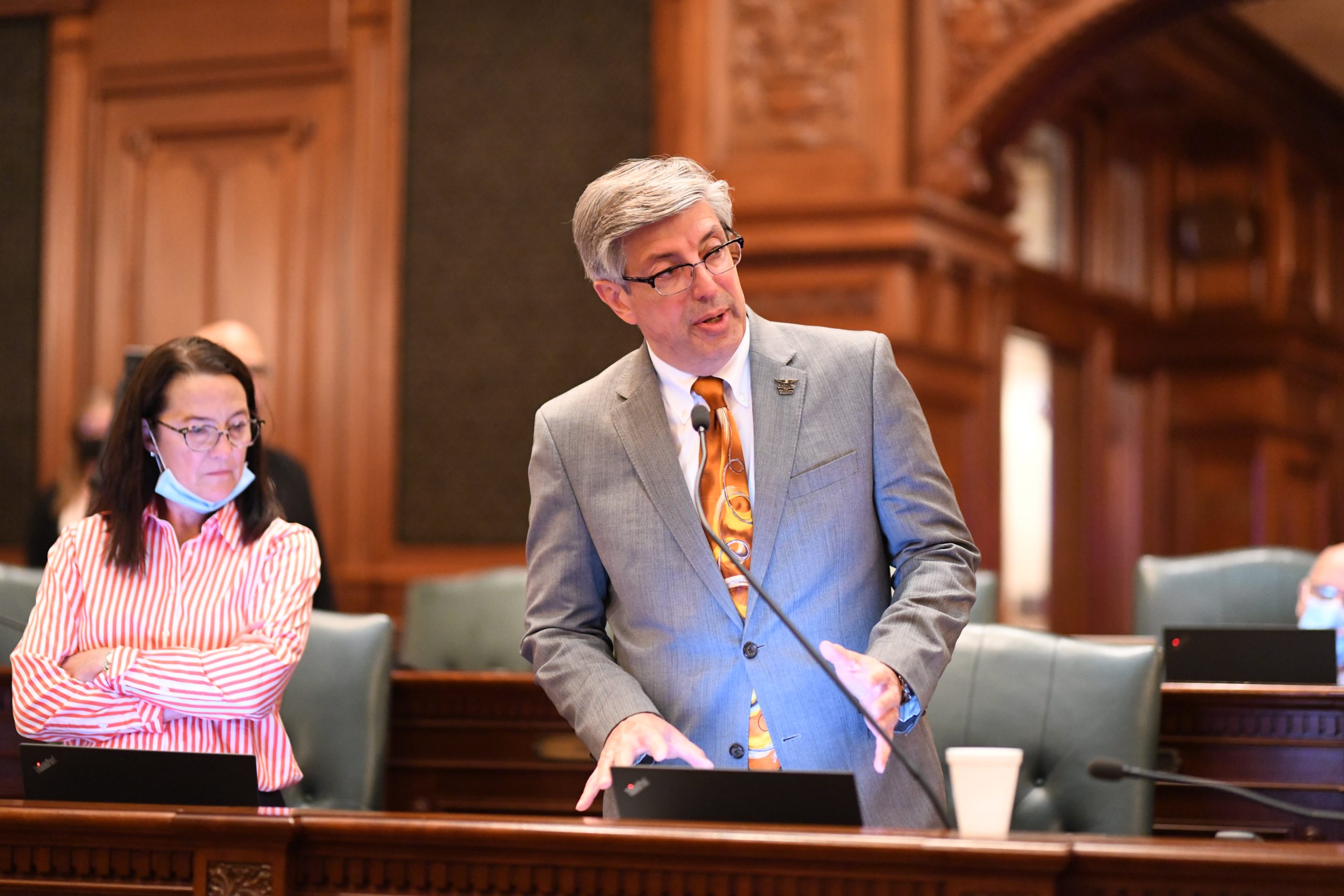
VIDEO: Ugaste Opposes Changes to Health Care Right of Conscience Act – Source repugaste.com
What is the Health Care Right Of Conscience Act?
The Health Care Right Of Conscience Act is a proposed law that would protect health care providers from being forced to participate in procedures that violate their religious beliefs or moral convictions. This includes procedures such as abortion, contraception, and end-of-life care.

NHS: The “5-Year Forward View” | Rtuc’s Blog – Source rtuc.wordpress.com

The Act would also protect health care providers from being discriminated against because of their religious beliefs or moral convictions. This means that they could not be fired, demoted, or otherwise penalized for refusing to participate in a procedure that violates their conscience.

Illinois “Health Care Right of Conscience Act” – Teacher Tool Kit Part – Source www.speakforstudents.org
History and Myths of the Health Care Right Of Conscience Act
The Health Care Right Of Conscience Act has a long and complex history. The first conscience protection law was passed in the United States in 1973, in response to the Supreme Court’s decision in Roe v. Wade. This law protected health care providers from being forced to perform abortions.
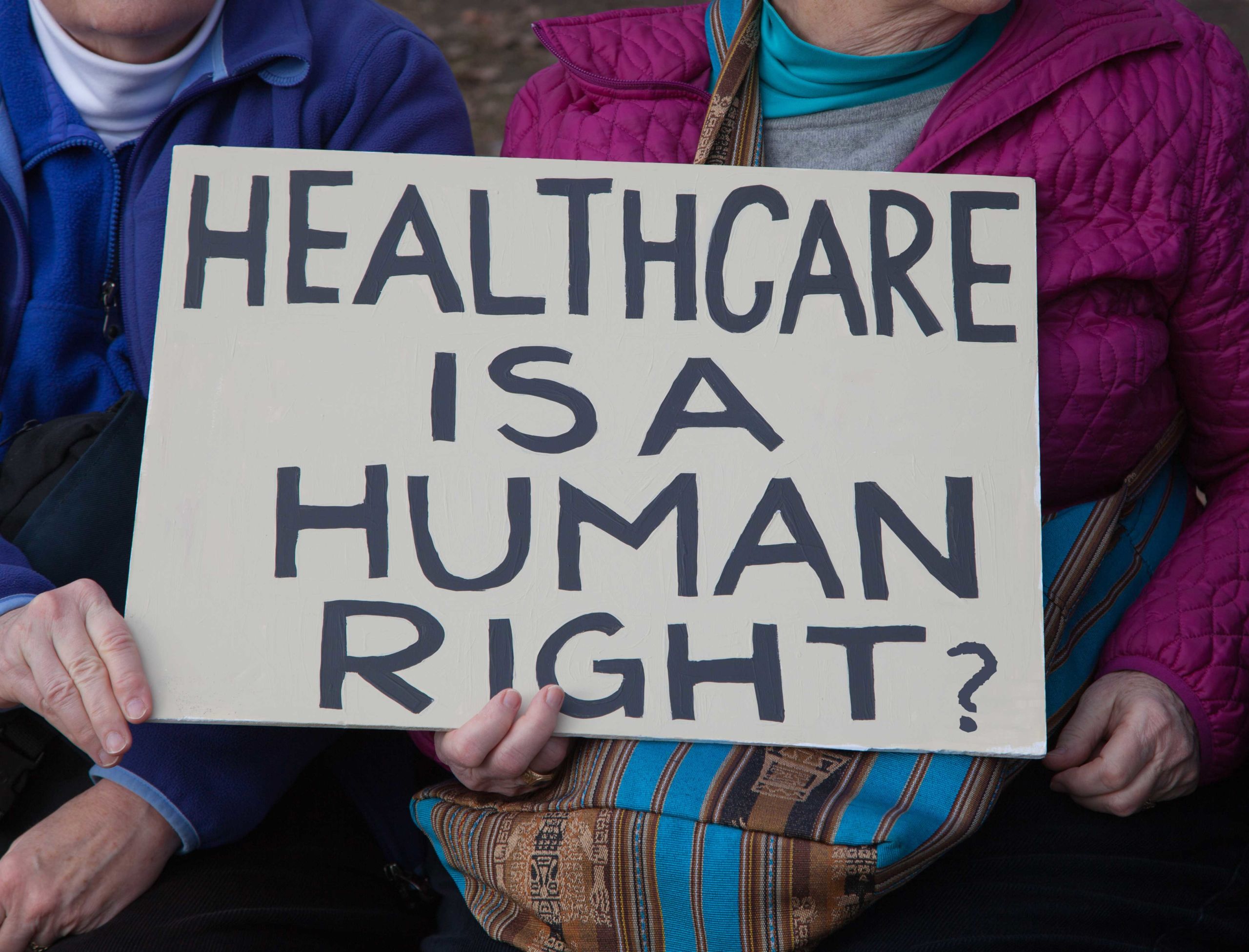
There Ain’t No Such Thing as a Universal Right to Health Care – John – Source www.johnlocke.org

Since then, several other conscience protection laws have been passed, both at the federal and state level. However, these laws have been challenged in court, and their scope has been narrowed by the courts.
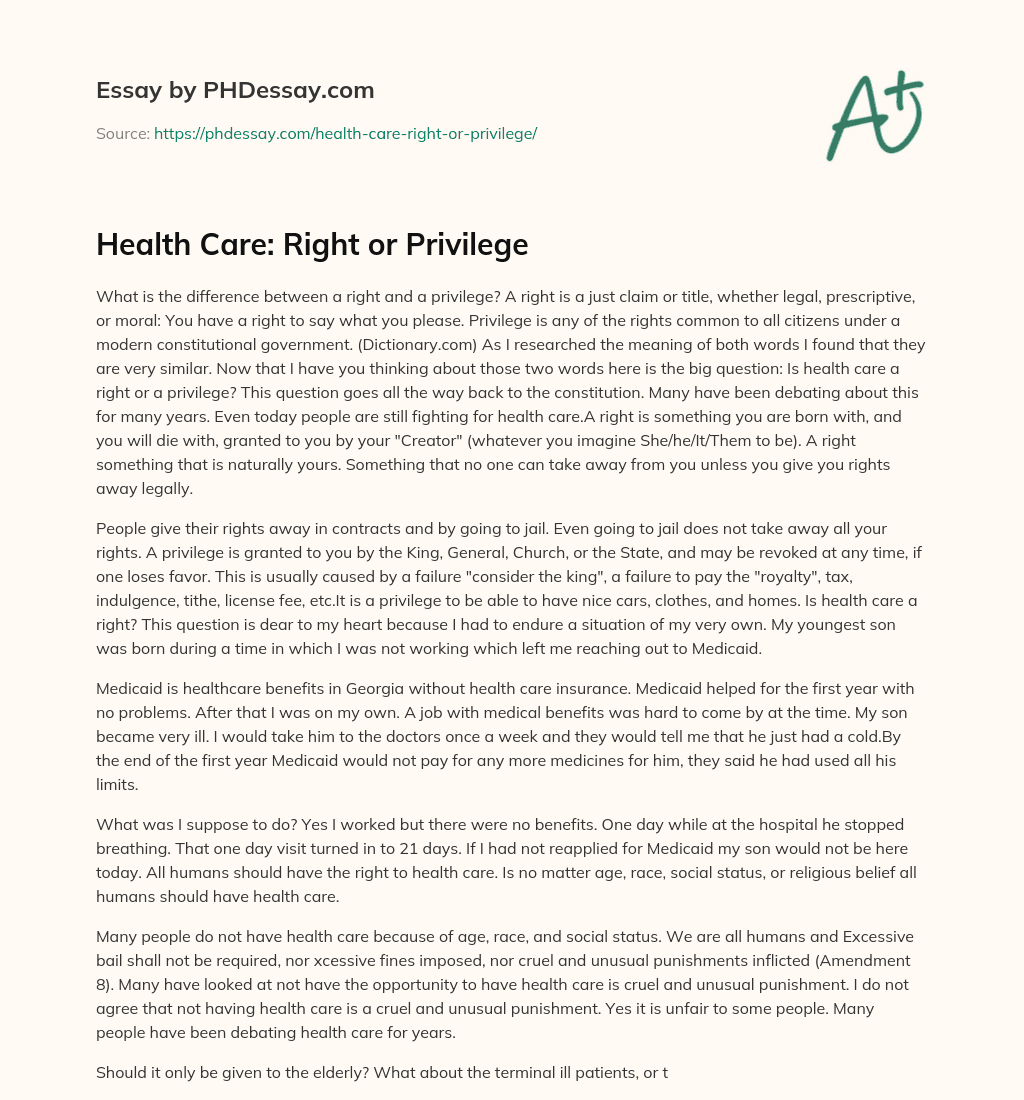
Health Care: Right or Privilege – PHDessay.com – Source phdessay.com
Hidden Secrets of the Health Care Right Of Conscience Act
The Health Care Right Of Conscience Act has been the subject of much debate and controversy. Critics of the Act argue that it would allow health care providers to refuse to provide essential medical care to patients, based on their personal beliefs.

However, supporters of the Act argue that it is necessary to protect the religious freedom of health care providers. They argue that health care providers should not be forced to participate in procedures that violate their conscience.
Recommendations for the Health Care Right Of Conscience Act
The Health Care Right Of Conscience Act is a complex issue with no easy answers. However, there are a number of recommendations that can be made to improve the Act and ensure that it protects the rights of both health care providers and patients.

First, the Act should be amended to make it clear that it does not allow health care providers to refuse to provide essential medical care to patients. This could be done by adding a provision that states that the Act does not apply to procedures that are necessary to save the life of the patient.
Tips for the Health Care Right Of Conscience Act
The Health Care Right Of Conscience Act is a powerful tool that can be used to protect the rights of health care providers and patients. However, it is important to use the Act wisely. Here are a few tips for using the Act effectively:

First, make sure that you understand your rights under the Act. The Act does not give health care providers the right to refuse to provide any type of medical care. It only protects health care providers from being forced to participate in procedures that violate their religious beliefs or moral convictions.
Fun Facts about the Health Care Right Of Conscience Act
The Health Care Right Of Conscience Act is a relatively new law. It was first passed in 1996, and it has only been upheld by the Supreme Court once. Despite this, the Act has had a significant impact on the way that health care is provided in the United States.

Here are a few fun facts about the Health Care Right Of Conscience Act:
The Act was originally passed as part of the Medicare Access and CHIP Reauthorization Act of 1996.
The Act has been upheld by the Supreme Court once, in the case of Gonzales v. Carhart.
The Act has been challenged in court numerous times, but it has never been struck down.
How to Health Care Right Of Conscience Act
The Health Care Right Of Conscience Act is a powerful tool that can be used to protect the rights of health care providers and patients. However, it is important to use the Act wisely. Here are a few tips for using the Act effectively:

First, make sure that you understand your rights under the Act. The Act does not give health care providers the right to refuse to provide any type of medical care. It only protects health care providers from being forced to participate in procedures that violate their religious beliefs or moral convictions.
What if Health Care Right Of Conscience Act
The Health Care Right Of Conscience Act is a controversial law that has been the subject of much debate. Some people believe that the Act is necessary to protect the religious freedom of health care providers, while others believe that it allows health care providers to discriminate against patients.

What if the Health Care Right Of Conscience Act were repealed? What would the impact be on health care providers and patients?
Listicle of Health Care Right Of Conscience Act
The Health Care Right Of Conscience Act is a complex law with a long and complicated history. Here is a listicle of some of the key things you need to know about the Act:

- The Act was passed in 1996 as part of the Medicare Access and CHIP Reauthorization Act.
- The Act protects health care providers from being forced to participate in procedures that violate their religious beliefs or moral convictions.
- The Act has been upheld by the Supreme Court once, in the case of Gonzales v. Carhart.
- The Act has been challenged in court numerous times, but it has never been struck down.
- The Act is a controversial law that has been the subject of much debate.
Questions and Answers about the Health Care Right Of Conscience Act
- What is the Health Care Right Of Conscience Act?
- How does the Health Care Right Of Conscience Act protect health care providers?
- What are the arguments for and against the Health Care Right Of Conscience Act?
- What is the future of the Health Care Right Of Conscience Act?
Conclusion of the Health Care Right Of Conscience Act
The Health Care Right Of Conscience Act is a complex and controversial law. It is important to understand the Act and its implications before making any decisions about its future.






